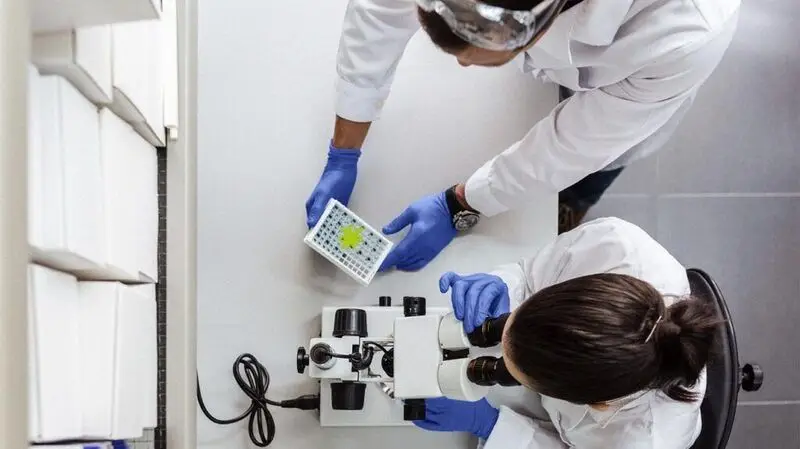
- Researchers report that certain type 2 diabetes drugs also used for weight loss could help lower colorectal cancer risk.
- Obesity and diabetes are both risk factors for colorectal cancer.
- Maintaining a healthy weight, getting regular screenings, and managing diabetes can all help lower colorectal cancer risk.
A class of type 2 diabetes medications that includes weight loss drugs such as Wegovy and Ozempic might also help prevent colorectal cancer, according to new
Researchers report that these drugs, called glucagon-like peptide-1 (GLP-1) receptor agonists (GLP-1 RAs), help manage diabetes and spur weight loss by lowering blood sugar, increasing insulin production, and slowing stomach emptying.
Because both obesity and diabetes are risk factors for colorectal cancer – the
The researchers reported that study participants treated with GLP-1 RAs had a 44% lower risk of colorectal cancer compared to other people with type 2 diabetes who were treated with insulin throughout a 15-year period of study data.
In addition, the people treated with GLP-1 RAs also had a 25% lower risk of colorectal cancer than those treated with the drug metformin.
“The exact reason why diabetes is a major risk factor for colorectal cancer remains elusive,” said Dr. Daniel Landau, a medical oncology, internal medicine and hematology doctor and an expert contributor for The Mesothelioma Center in Florida who was not involved in the study. “Theories include that diabetes is a pro-inflammation state, and inflammation is a risk for cancer, excessive exposure of tissue to endogenous sugars promotes an environment in which cancers can grow, and diabetes often coincides with other risk factors such as obesity.”
“What has not been clear is how effective treating diabetes is at alleviating the high risk of cancers,” Landau told Medical News Today. “With the advent of the GLP1-Ras, we now have some data that these therapies may be more effective at reducing the risk of colorectal cancers in patients with diabetes than other drugs are.”
As to why these particular drugs are more effective at preventing colorectal cancer than other type 2 diabetes medications, Landau speculated that they might simply be superior at causing weight loss and that their longer-acting nature could increase their efficacy.
“The study presents a potentially groundbreaking development in understanding the relationship between diabetes treatment and cancer prevention,” said Dr. Wael Harb, a hematologist and medical oncologist at MemorialCare Cancer Institute at Orange Coast and Saddleback Medical Centers in California who was not involved in the study.
“As a physician in the biopharma industry, I find these initial findings promising,” Harb told Medical News Today. “However, it’s crucial to emphasize that these are preliminary results and they need to be validated through larger, more comprehensive studies before being considered for clinical application.”
Dr. Anton Bilchik, a surgical oncologist, chief of medicine, and director of the Gastrointestinal and Hepatobiliary Program at Saint John’s Cancer Institute in California, called the study’s finding “important and provocative” not only for the potential practical implications but for deepening our understanding of colorectal cancer itself.
“These drugs are being used with more frequency given the profound impact on weight reduction,” Bilchik, who was not involved in the study, told Medical News Today. “If there is a reduction in the development of colorectal cancer through independent mechanisms, this study may provide scientists an opportunity to better understand the cause of colorectal cancer.”
Whether you take medication or not, experts say the best way to reduce your colorectal cancer risk is to avoid type 2 diabetes and obesity as well as adopt a healthy diet and get regular medical check-ups.
It’s estimated that about
“Colorectal cancer is the third most common cancer worldwide and in the U.S., we are seeing how rates are rising among people younger than 50,” said Dr. Misagh Karimi, a medical oncologist specializing in gastrointestinal cancers at City of Hope Orange County Lennar Foundation Cancer Center in California.
“To lower the risk of colorectal cancer, it’s important to eat a nutritious diet with fruits and vegetables, stay physically active, limit the consumption of alcohol, and not smoke tobacco,” Karimi, who was not involved in the new study, told Medical News Today. “Getting screened for colorectal cancer as your physician recommends is key as early detection can make all the difference.”





